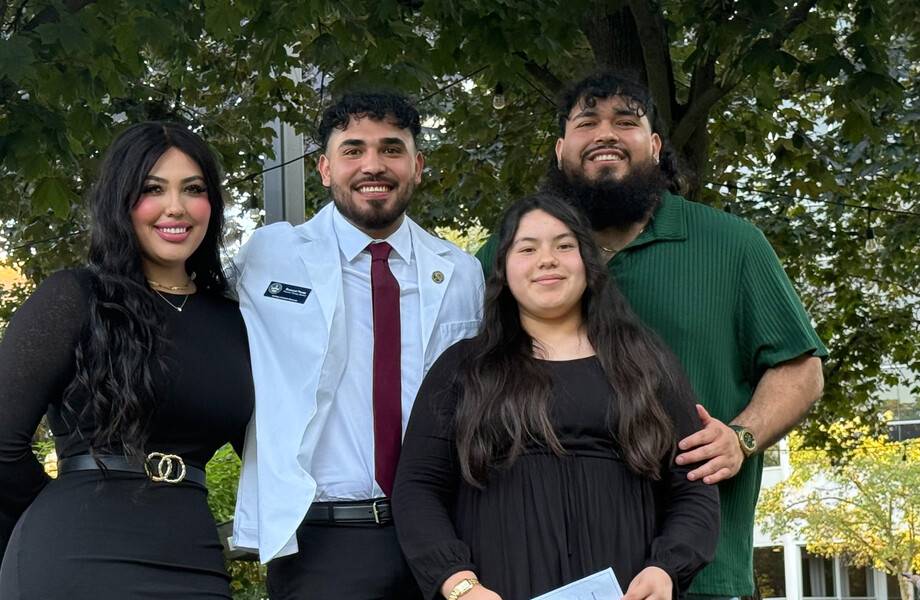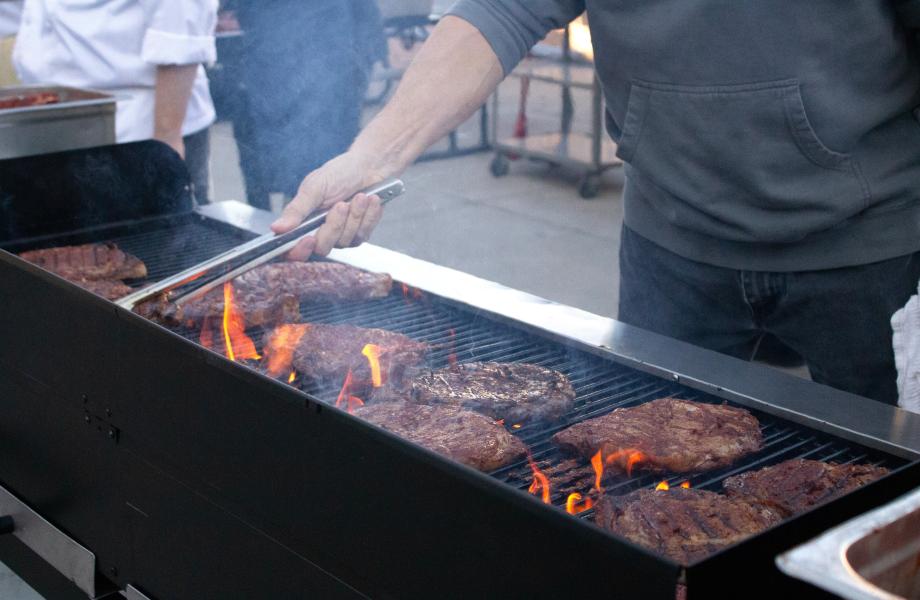Bringing relief to doorsteps during COVID-19
Karen McAlister and Ana Sanchez climb the concrete stairs to the second floor of an apartment building in the Sunnyslope area of Phoenix. It’s hot – 109 degrees Fahrenheit outside – and they’re hauling a box filled with grocery essentials from the St. Vincent de Paul food pantry at Most Holy Trinity Catholic Church.
Both women are parish-based volunteers, better known as Vincentians at SVdP. On this Friday they’re making home visits and responding to calls for help they received from families in the neighborhood where their parish is based. With the economic fallout of the COVID-19 pandemic, most calls are from people threatened with eviction. They seek rent and utility assistance dispersed through SVdP’s neighborhood network of food pantries.
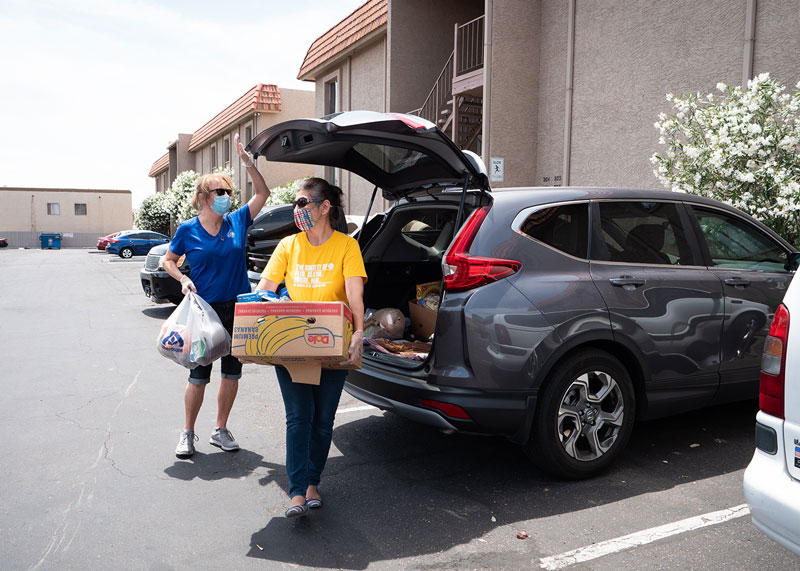 At the top of the landing, they set the food box at the doorstep, knock and back six feet away. COVID-19 has made everything different, from increased calls to home visit procedure. Today, Karen and Ana are in masks and gloves to protect themselves and the people they serve from possible exposure. They won’t go inside.
At the top of the landing, they set the food box at the doorstep, knock and back six feet away. COVID-19 has made everything different, from increased calls to home visit procedure. Today, Karen and Ana are in masks and gloves to protect themselves and the people they serve from possible exposure. They won’t go inside.
A woman named Liza opens the door with a cheerful face and greets everyone from afar. Her almost-two-year-old son, Axel Adrian, quickly comes to say hello. He’s one of two boys that Liza and her husband raise together.
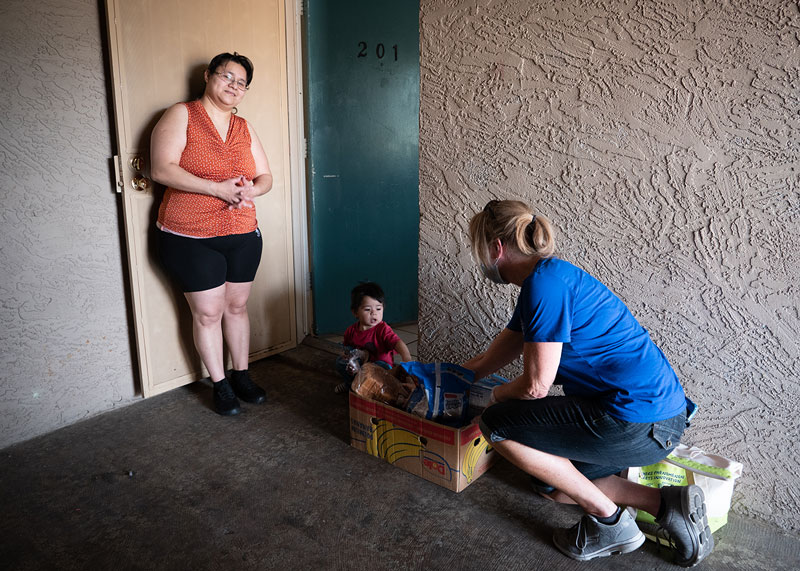
But it’s been difficult making ends meet. Liza and her husband worked as housekeepers for a local hotel that had to close its doors when the pandemic struck. Suddenly both parents found themselves out of work. They dug into the little savings they had to buy food and pay a portion ($300) of rent for April and May. But it wasn’t enough, especially when the landlord added a late fee and said he’d return with an eviction order.
“I remember thinking, ‘How can he do that during this situation?’” Liza says. “We have lost our jobs because of all of this, and I really wish I could pay the rent, but I can’t. I can’t do anything about it.”
That’s when Liza called SVdP for help. That call brought Karen and Ana to her doorstep with $500 to cover the last part of the family’s rent and a food box to get through the next few weeks as the parents search for work. Liza says that search has been challenging since neither she nor her husband have experience outside of housekeeping. They feel frustrated and nervous. They’ve always supported themselves and worked hard to live comfortably paycheck to paycheck.
“We are just waiting for this pandemic to be over,” Liza says, “so we can get out from this situation.”
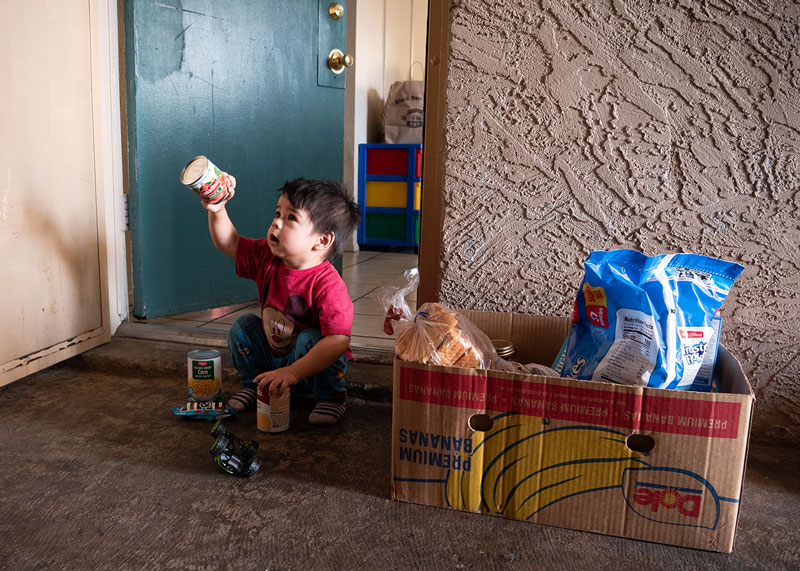 As Ana checks in with Liza on other possible needs (like utility assistance), Axel Adrian begins playing with the canned goods he’s found in the food box. It’s packed with canned veggies, proteins, pasta, sauce and peanut butter. The pantry had just stocked up for the week with 800 pounds of food donations sorted and picked up from SVdP’s food warehouse at the main campus just south of downtown. Karen and Ana topped off the non-perishables with bread, eggs, a gallon of milk and two sticks of butter.
As Ana checks in with Liza on other possible needs (like utility assistance), Axel Adrian begins playing with the canned goods he’s found in the food box. It’s packed with canned veggies, proteins, pasta, sauce and peanut butter. The pantry had just stocked up for the week with 800 pounds of food donations sorted and picked up from SVdP’s food warehouse at the main campus just south of downtown. Karen and Ana topped off the non-perishables with bread, eggs, a gallon of milk and two sticks of butter.
Liza never expected to receive so much care. After all, she had called for rent assistance. But Karen and Ana know that so many families won’t ask for all that they may need. Helping with the month’s groceries is another way to ease financial pressure during this time.
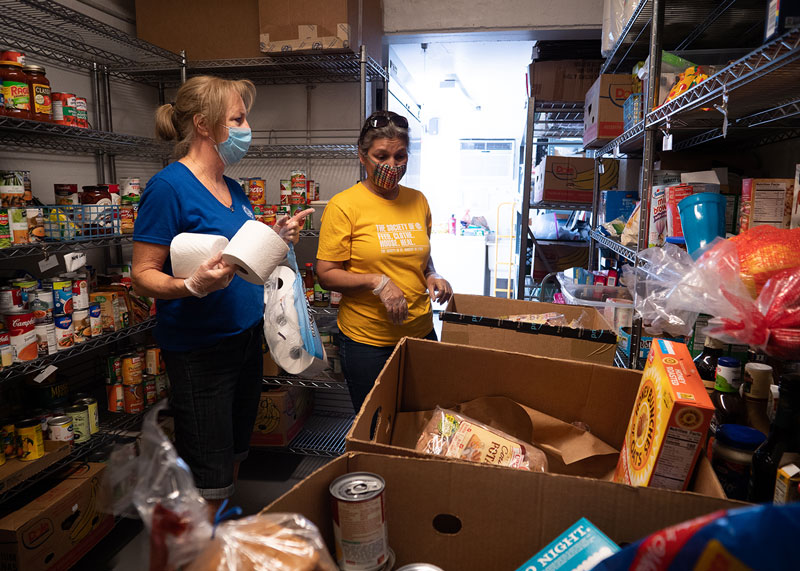 Keeping visits brief, Karen and Ana promise to check in on Liza by phone. With the rental assistance and a completed eviction delay form, they’ve helped hold the family's eviction crisis at bay. But Liza's family isn't out of danger yet. Arizona’s eviction moratorium means families like Liza’s will have a home for now, but when the moratorium lifts on July 23, rent will come immediately due.
Keeping visits brief, Karen and Ana promise to check in on Liza by phone. With the rental assistance and a completed eviction delay form, they’ve helped hold the family's eviction crisis at bay. But Liza's family isn't out of danger yet. Arizona’s eviction moratorium means families like Liza’s will have a home for now, but when the moratorium lifts on July 23, rent will come immediately due.
“Even with the state eviction moratorium in place, many landlords are still pressuring tenants and trying to take them to court,” Karen says. “As soon as the moratorium ends, these families will be forced out if they can’t pay what’s owed.”
Without a job to earn money and money to pay their rent, Liza and her family teeter on the edge of homelessness.
And they aren’t alone. Back at the car, Karen and Ana have two more homes to visit today — another two families caught in the economic crisis of the pandemic.
Help keep families in their homes. Donate today to support our rent and utility assistance.


